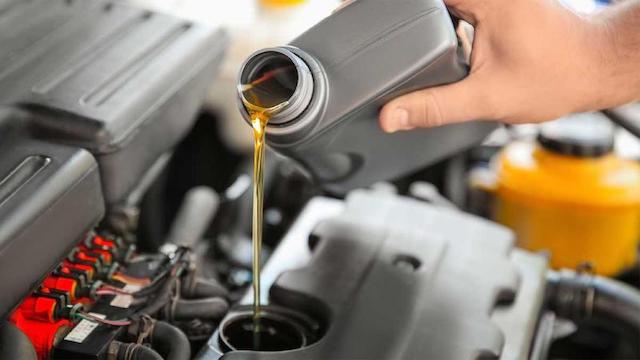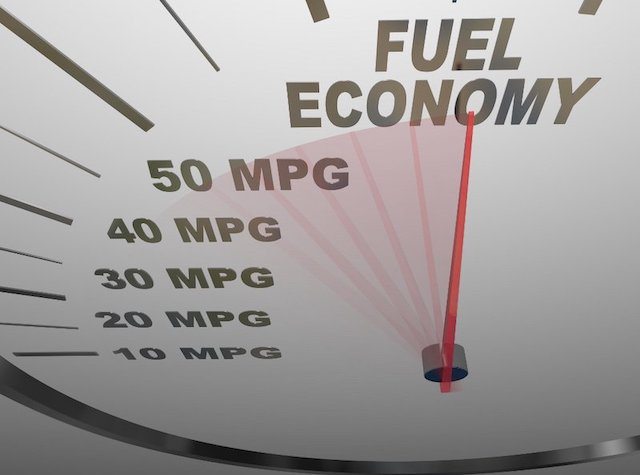How Clean Oil Leads To Better Engine Performance
There’s a reason you’re supposed to change your oil every 3K-7K miles. It’s a simple reason, actually. Clean oil helps the engine perform better, and it helps the engine last longer. In other words, dirty oil is your engine’s worst enemy.
Why Your Engine Needs Clean Oil

The engine has a lot of moving parts that fit closely together. When the engine is running, the oil forms a very thin, slippery, protective barrier between moving parts. The parts aren’t actually touching each other, they are only in contact with the oil. This is what allows engine components to move at great speed without quickly wearing out. That’s why your engine needs oil. In fact, it needs clean oil.
Without proper lubrication in your engine, the moving parts begin to grind against each other. The friction between the parts creates heat. Metal expands in extreme heat. This creates less room for the oil, so even more friction and heat occurs. This causes the parts to wear quickly. For example, the big end bearings between the connecting rod and the crankshaft can wear enough to cause excess slop. This can be heard while the engine is running – it’s called knocking, or rod knock.
Motor oil not only lubricates the engine parts, it also keeps them cool enough to not overheat and expand. That’s why your engine needs clean motor oil to function properly.
How Does Clean Oil Lead to Better Performance?

Not only is clean oil needed for your engine to function properly, it also helps the engine perform better. Dirty oil:
- Becomes thicker as sludge forms in the oil. Thicker oil is harder to pump, so more of the engine’s power is consumed pumping dirty oil.
- Doesn’t lubricate as well. This increases friction inside the engine, and more of the engine’s power is used to overcome the friction.
Clean oil allows the engine to use as little power as possible to pump oil and overcome friction, so more power can go to moving the vehicle.
Dirty Oil Is Better Than No Oil, Right?
For optimal engine performance and longevity, clean oil is necessary. It’s technically true that dirty oil is better than no oil, but dirty oil only delays the inevitable. While dirty oil can somewhat lubricate the engine, it’s not going to do a good job.
It’s normal for engine parts to wear and contaminate the oil with tiny metal shavings. That’s expected. If the oil is kept clean by the filter, it can keep lubricating the engine parts without any issues.
If you don’t change the oil, it’s only going to become dirtier and dirtier. Sludge forms in the oil, and begins clogging the oil filter. If the filter gets clogged enough, the bypass valve will open and allow unfiltered oil to circulate through the engine. This will cause wear as it circulates through the engine. Changing the oil regularly is pretty much the best thing you can do for your car.
The Lubrication System
Your engine has an intricate lubrication system. Many parts are dedicated to lubricating the engine. Not only does oil lubricate the engine, it also cools specific components in the engine. Here’s a list components found in a typical lubrication system:
- Oil sump
- Engine oil filter
- Piston cooling nozzles
- Oil pump
- Oil galleries
- Oil cooler
Many of the components in the lubrication system have small passageways that were designed assuming clean oil would be in use. If the oil gets too dirty or sludgy, the passageways can begin to clog. This reduces lubrication where it’s needed, and it also reduces the oil’s ability to cool certain parts.
Which Parts Need Oil To Function?

To put it plainly, your entire engine needs to be lubricated. Lubrication is critical for the following engine parts:
- Crankshaft main bearings
- Big end bearings
- Piston pins and small end bushes
- Cylinder walls
- Piston rings
- Timing gears
- Camshaft and bearings
- Valves
- Tappets and push-rods
- Oil pump parts
- Water pump bearings
- In-Line fuel injection pump bearings
- Turbocharger bearings (if applicable)
- Vacuum pump bearings (if applicable)
Most of these parts are very expensive to replace. Sometimes it’s cheaper to replace the entire engine than replace components inside the engine. You know the saying, “an ounce of prevention is worth a pound of cure”? It especially rings true in this case. A DIY oil change only costs about $30 or $40 dollars, but it’ll prevent hundreds – if not thousands – of dollars of repairs.
Using A Good Quality Oil Filter Ensures That Your Oil Stays Clean Longer

The oil filter is solely responsible for keeping the oil clean as long as possible. This helps your engine produce as much power as possible. You can either:
- Get an inexpensive disposable paper oil filter
- Get a high quality reusable oil filter
If you want to keep your engine running at it’s peak, a good quality reusable oil filter is just what you need. Pure Power! lifetime oil filters are among the best reusable oil filters on the market. You can learn more about Pure Power! lifetime oil filters here.
